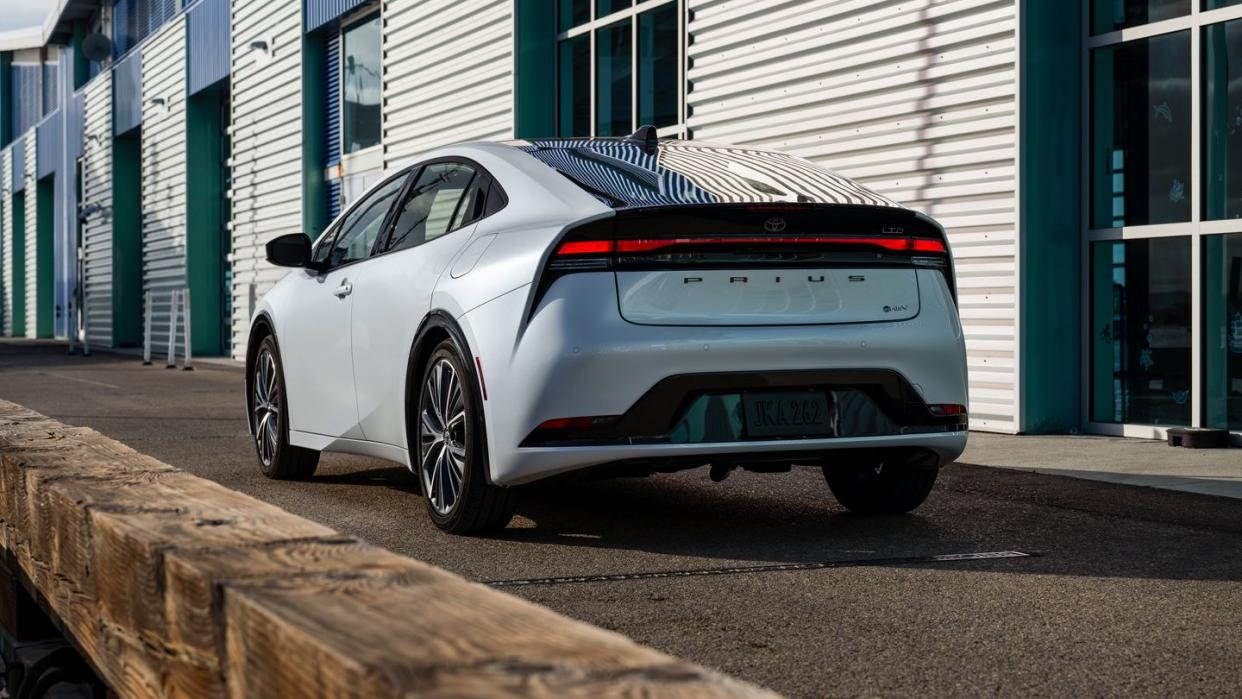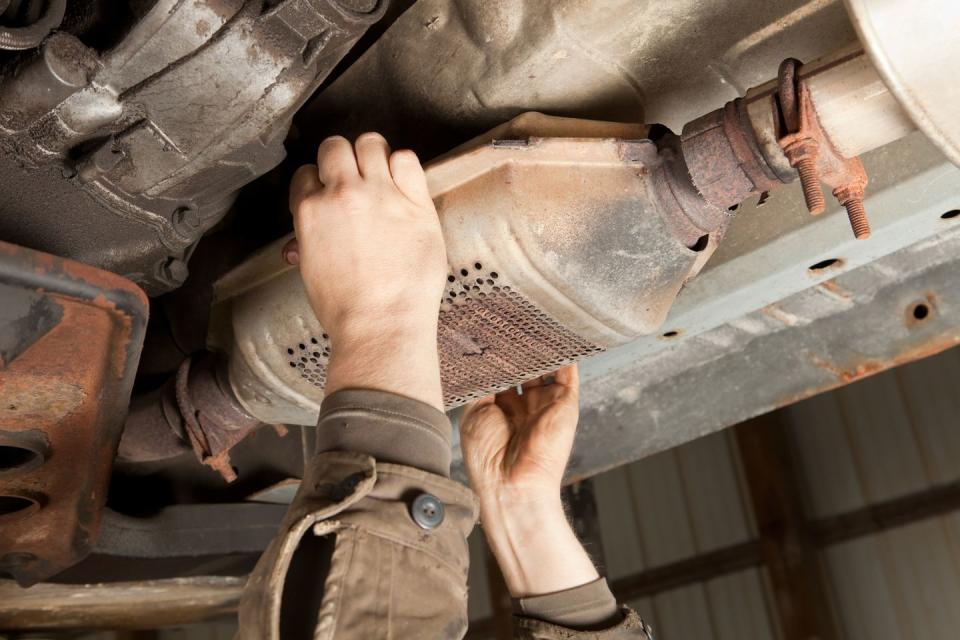Do Hybrids Have Catalytic Converters?

In the ever-intensifying pursuit of reducing emissions from cars, electric vehicles are the most evident near-term solution. But, whether it be due to high cost or limited range and public-charging infrastructure, EVs don't make sense for everybody.
This is where hybrids come in. Hybrid cars still burn gasoline in an internal-combustion engine, but that's paired with one or more electric motors and a high-voltage battery pack. While hybrids have their own pros and cons, in general, they offer efficiency benefits—or, in the case of plug-in hybrids, some of the benefits of electric running—combined with the flexibility and ease of ownership of a traditional, gasoline-powered car. Thanks to that, hybrids hit the sweet spot for many buyers.
But just how good for the environment are they? Do hybrids have catalytic converters? Yes, they do. In fact, they have more complex and more valuable catalytic converters than regular cars, and that can cause some real problems. Let's dig into the details.

What Is a Catalytic Converter, and How Does It Work?
Any gasoline-burning internal-combustion car gives off some sort of emissions that are bad for the environment. When gasoline is ignited inside the engine, it's turned into heat and energy, which moves the car. Unfortunately, a lot of other stuff is generated, too. This includes carbon monoxide, oxides of nitrogen, and hydrocarbons, which can cause everything from acid rain to asthma and even heart disease.
Catalytic converters, or "cats," are so named because they contain catalysts. Catalysts are metals that react with those toxic compounds, effectively neutralizing them. The chemical reactions within produce less harmful compounds such as carbon dioxide and plain old water.
The Integration of Catalytic Converters in Hybrid Vehicles
Like any other car with an internal-combustion engine, the catalytic converter is installed as part of the vehicle's exhaust system. The catalytic converter is effectively a porous mesh through which the exhaust gases flow. As the exhaust touches the catalyst, chemical reactions occur, and the resulting emissions are massively reduced.
How Hybrids Benefit from Catalytic Converters
Hybrids are more efficient than your average car with an internal-combustion engine. The electric motors in hybrids provide some degree of emissions-free running, which reduces fuel consumption. Likewise, internal-combustion engines in hybrids tend to run more efficiently, tuned with different combustion cycles and ignition timing, again made possible by those electric motors handling some of the heavy lifting.
So, if today's best hybrids have significantly lower emissions than normal internal-combustion cars, why do hybrids have catalytic converters? Even though they emit fewer emissions than standard cars thanks to their increased efficiency, hybrids still emit the same toxic substances, such as carbon monoxide. So they need help from cats just like any other vehicle with internal combustion.
You might think that a hybrid can get away with a smaller, more basic cat thanks to that increased efficiency, but the opposite is true. Catalytic converters are more effective when hot, and a traditional, nonhybrid car, with its engine running constantly, provides plenty of heat.
Hybrids, which can cruise on electric power at least part of the time, provide less frequent heat to keep the cat at its operating temperature. This means hybrid cats must be even more advanced than those in traditional cars. That leads us to one of the biggest problems with catalytic converters in hybrids: theft.
Potential Issues with Catalytic Converters in Hybrid Cars
When we say that hybrids need better catalytic converters than standard cars, we mean that they generally require more active catalysts inside. And what exactly are the catalysts? They're metals that react with exhaust gases, and they tend to be precious. Platinum is very commonly used in catalytic converters, and as anyone who's ever shopped for jewelry can tell you, platinum doesn't come cheap.
Hybrid catalytic converters generally contain more of these metals, which is why the Toyota Prius is one of the most commonly targeted cars for cat theft.
FAQ: Catalytic Converters in Hybrid Vehicles
Do all hybrid cars come with a catalytic converter?
Yes, all hybrid cars sold in the U.S. have catalytic converters. In fact, since 1975 almost every new non-commercial car with internal-combustion engines has included a cat. That most definitely includes hybrids.
How does a catalytic converter in a hybrid differ from a traditional gasoline vehicle?
Hybrid catalytic converters generally contain more precious metals, making them more efficient even when they're not yet up to temperature. This also makes them more expensive and more valuable to thieves.
What are the signs of a failing catalytic converter in a hybrid car?
Like any internal-combustion car, signs of a failing catalytic converter include poor performance, reduced fuel economy, and an awful, sulfur-like smell from the exhaust.
Can a malfunctioning catalytic converter impact a hybrid's fuel efficiency?
A failing catalytic converter can block a car's exhaust system, effectively preventing the vehicle from exhaling. This can have a significantly negative impact on a car's performance and fuel efficiency.
How can I maintain the catalytic converter in my hybrid vehicle?
Modern catalytic converters don't require much maintenance. The most important thing is ensuring they stay attached to your car! With replacement costs averaging over $2000, these catalytic converter theft protection devices become a very, very good idea.
You Might Also Like

 Yahoo News
Yahoo News 
